3Q 2022 Regional Cooperation Sub-committee Meeting
- Consultation & Advice Division
- 09-19-2022
3Q 2022 Regional Cooperation Sub-committee Meeting
- Laying equal footing to launch the Inter-Korean Local Government Cooperation Project –
The Regional Cooperation Sub-committee of the PUAC held a policy proposal meeting for the third quarter of 2022 at the Secretariat on September 16 (Fri) and discussed the topic entitled ‘Laying Equal Footing to Launch the Inter-Korean Local Government Cooperation Project.’
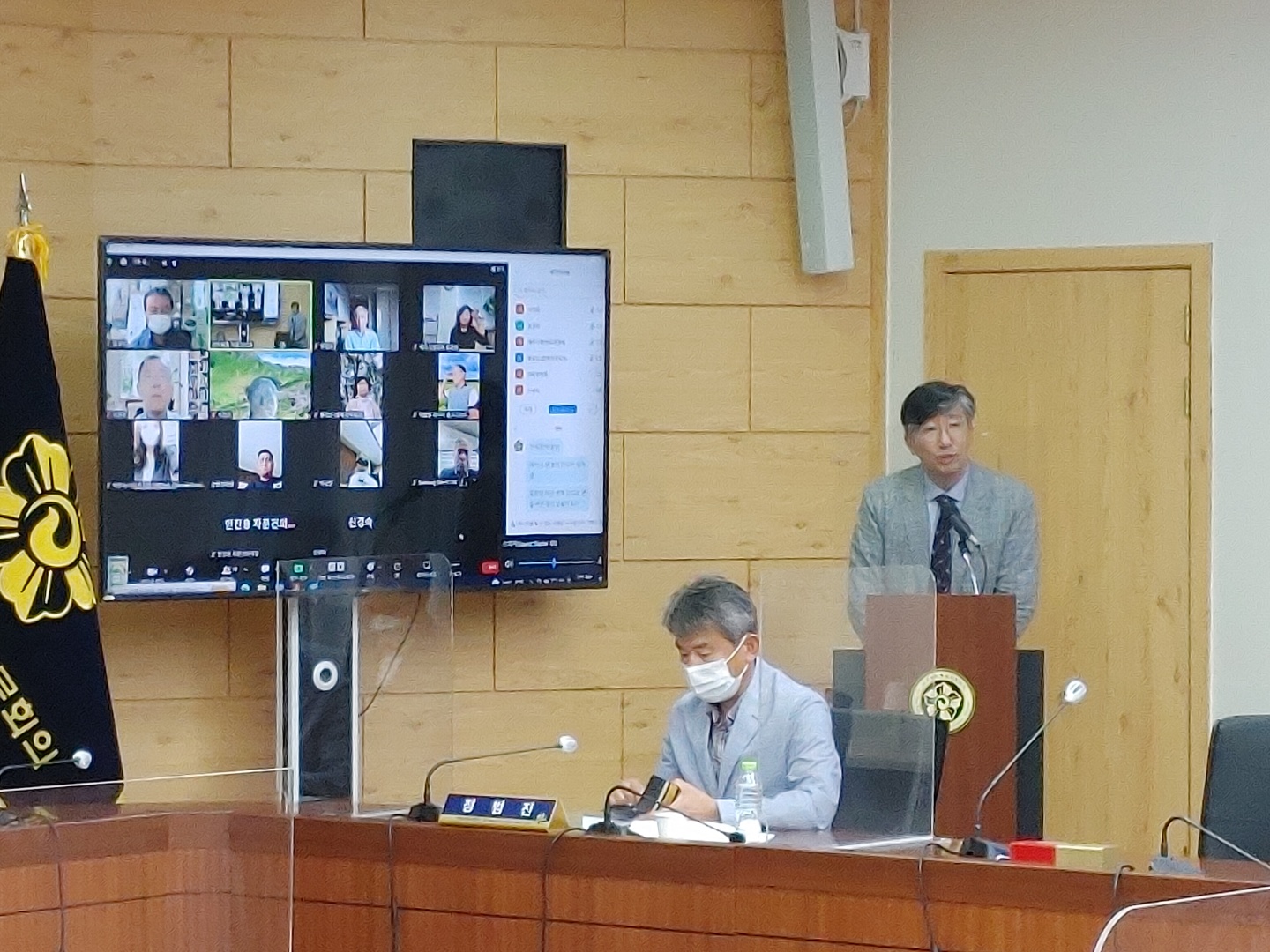
Yeo Hyeon-cheol, secretary of the committee, presided over the meeting due to the absence of the chair. He expressed concern over the strained inter-Korean relations when interdependence is intensifying in the region, He then emphasized, "Inter-Korean local government cooperation is more necessary than ever so that future generations can envision a unified Korean Peninsula."
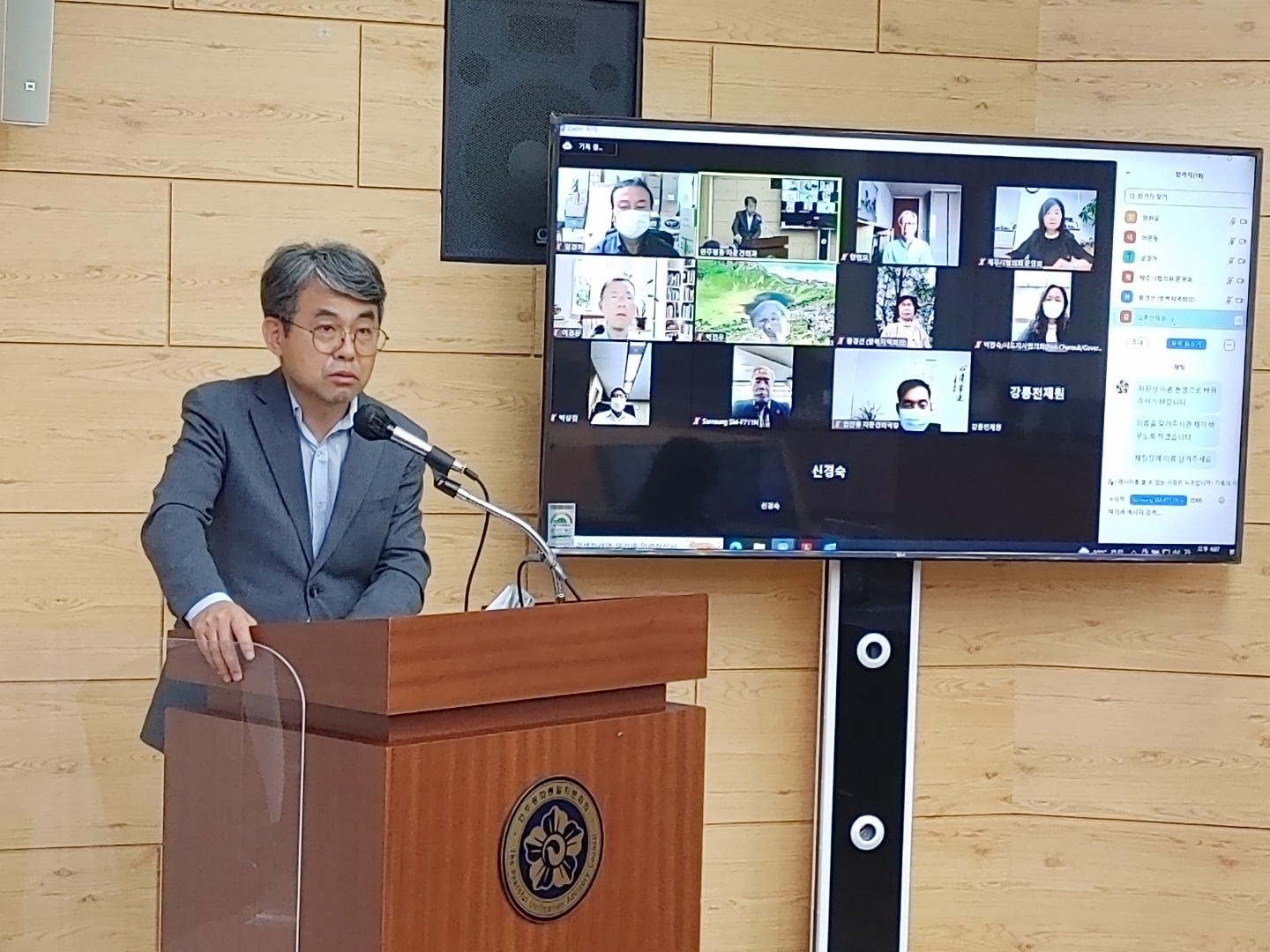
In his greetings, Kim Chang-su, secretary general of the PUAC said that amidst unstable inter-Korean relations, both non-traditional and traditional security elements have transpired such as unfavorable international situations, new arms race between North and South Korea due to North Korea’s enactment of nuclear weapons legislation, and the COVID-19 pandemic and extreme weather. He urged all the PUAC members to faithfully carry out their duties despite all those difficult conditions.
The panel discussion started with a presentation by Yang Cheol, associate research fellow of the Research Institute for Gangwon, followed by presentations by Baek In-ju, CEO of Hanpyeong Policy Research Institute, Mun In-cheol, research fellow of the Seoul Institute, and Nam Geun-u, research fellow of the Incheon Institute.
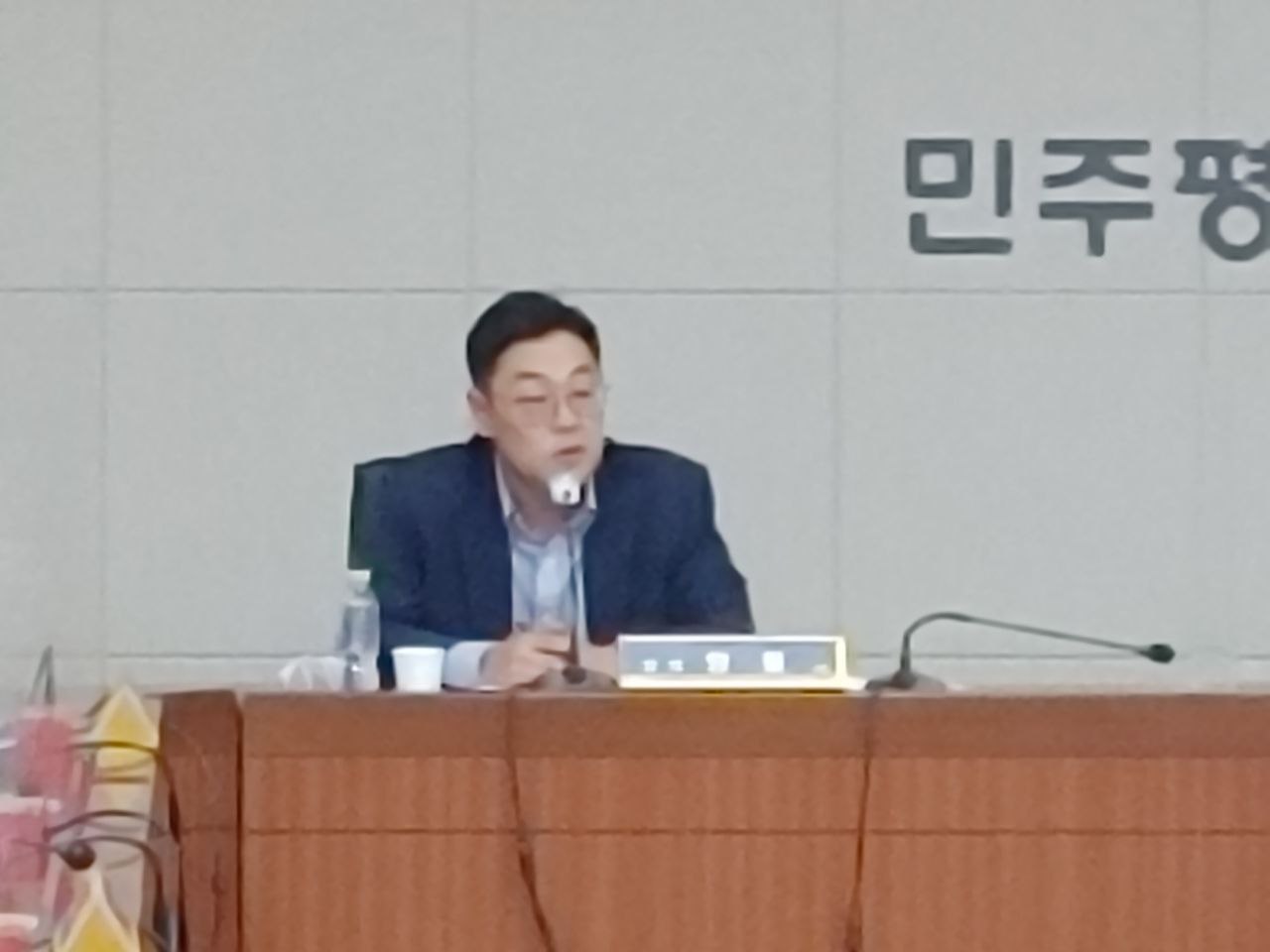
Yang Cheol from the Research Institute for Gangwon said that the South Korean government proposed a ‘bold initiative’ that could dramatically improve the North Korean economy if North Korea stops developing nuclear weapons and transitions to denuclearization. In line with this, he emphasized that the Regional Cooperation Sub-committee had to ensure the continuity of the inter-Korean regional exchange and cooperation projects by (1) building governance for regional exchange and cooperation projects, (2) securing dedicated manpower for local governments, and (3) supporting a cooperation system with related organizations.
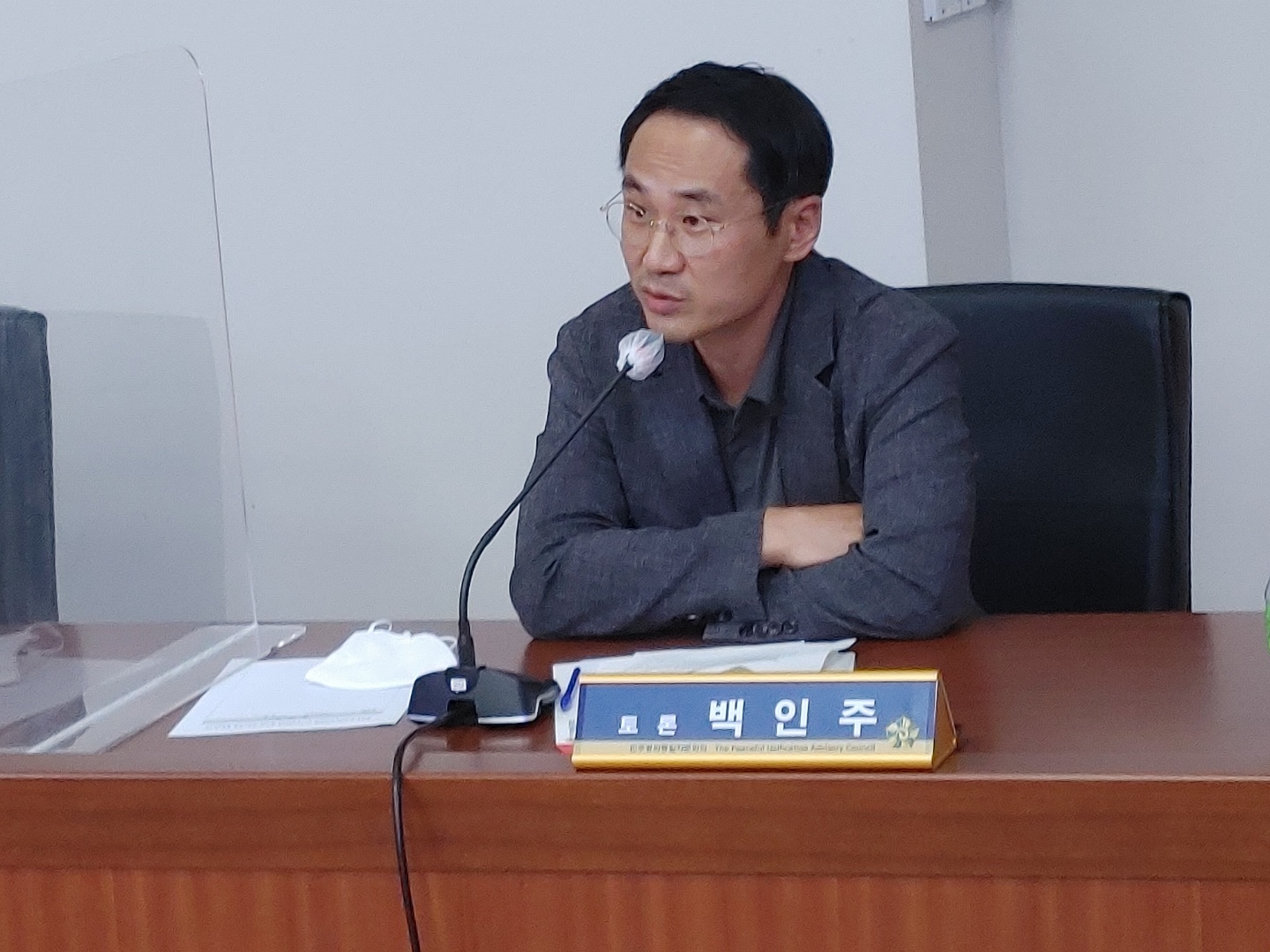
Baek In-ju, CEO of the Hanpyeong Policy Research Institute, said that it is desirable to promote the improvement of North Koreans’ livelihood as an inter-Korean regional cooperation project while referring to the initial measures of the ‘bold initiative’ proposed by the Yoon Suk-yeol government. He proposed promoting inter-Korean exchanges and cooperation using the ‘Reinvent the Toilet (RT) project’ in the health and sanitation field among the projects of the ‘bold initiative’ designed to improve North Koreans’ livelihood. He added that the 'toilet supply project' is particularly suitable for the improvement of their living conditions as it is expected to make a dramatic contribution to improving the health and hygiene of North Koreans.
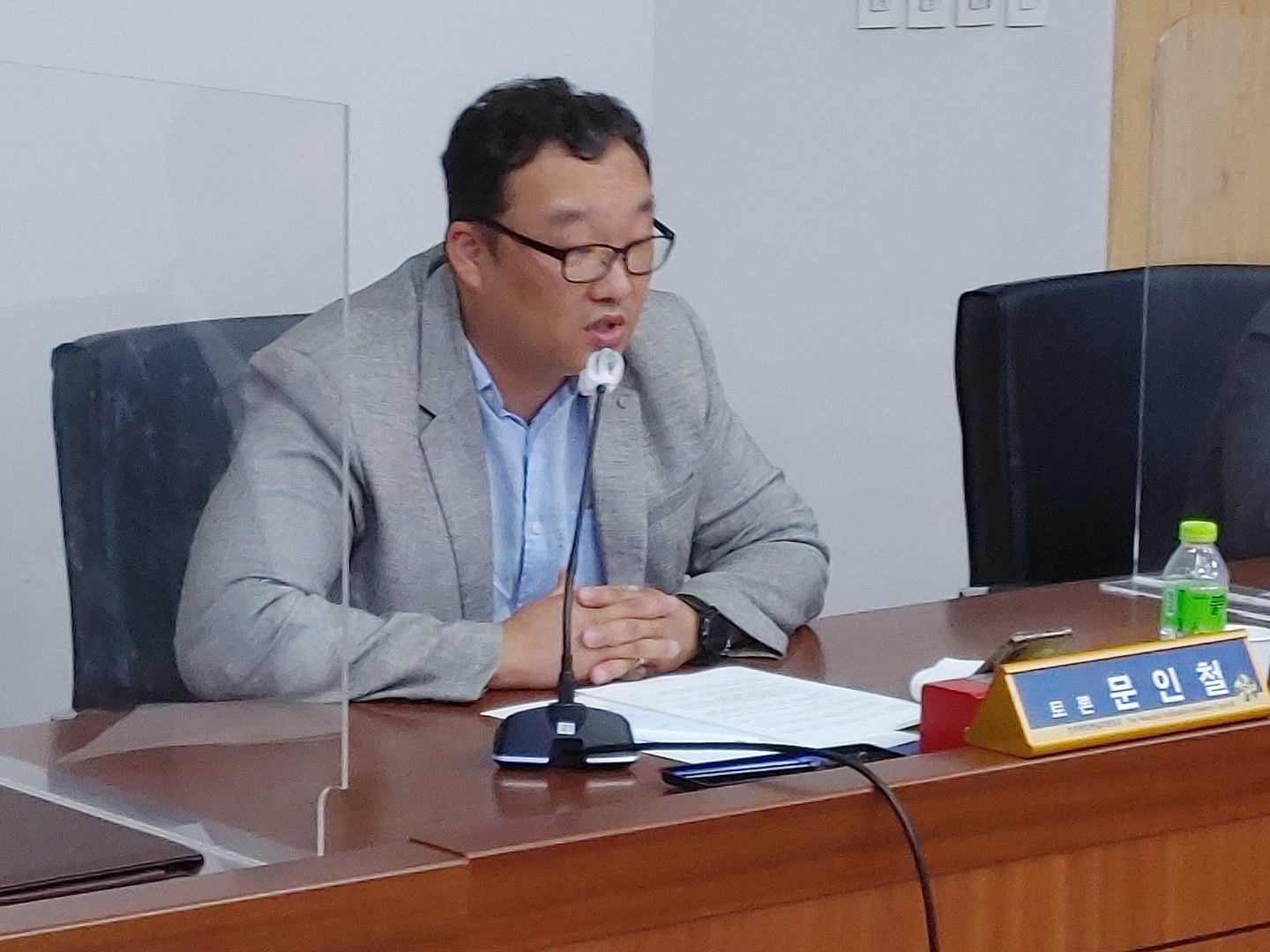
Mun In-cheol from the Seoul Institute said that the ‘bold initiative’ is groundbreaking in that it will actively pursue economic support for North Korea ‘starting in the initial negotiation process,’ unlike the ‘Denuclearization-Open-3000’ plan. He said, "The government should show a principled stance based on the bold initiative, but on the other hand, it is necessary to secure a channel for inter-Korean communication by making local governments promote humanitarian aid in the fields of food, medical care, and health."
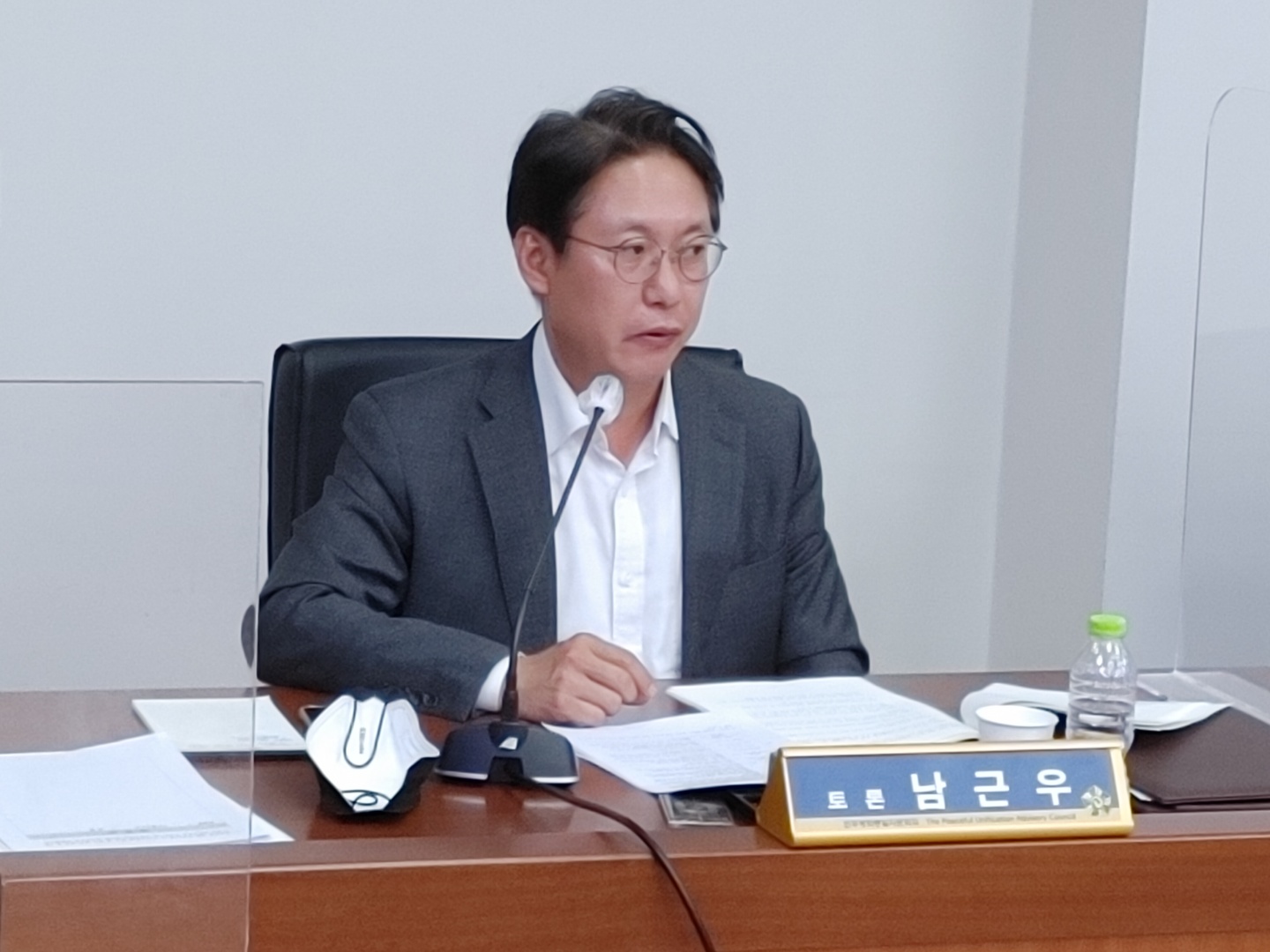
Lastly, Nam Geun-u from the Incheon Institute said that the bold initiative should be pursued in parallel with the phased or simultaneous progress of North Korea's denuclearization, emphasizing, “It is more necessary than ever to prepare a plan for a local government cooperation project that links the implementation of the bold initiative to the needs of North Korea in addition to a local government plan designed to create a leading district in Green Détente to lay the foundation for the bold initiative.
The members of the Regional Cooperation Sub-committee in attendance also presented various opinions on related topics.
Their opinions included, (1) It is necessary to promote economic cooperation from the point of view of increasing mutual benefits rather than formally applying the concept of humanitarian aid, (2) It is necessary to put a brake on the trend of downsizing departments handling inter-Korean exchanges and cooperation in local governments, which is undermining the momentum of inter-Korean exchanges and cooperation, (3) It is necessary to establish a specific plan for local governments to continue providing support in the fields of food and medical care although the conditions of the 8th local governments have worsened for inter-Korean exchanges, and (4) Inter-Korean exchanges and cooperation should be prioritized over nuclear abandonment while local governments should gradually promote exchanges starting from the micro level.
All the presentations made on this day will be published as a policy proposal report in due course.
-
How much are you satisfied with the information you have reviewed?



